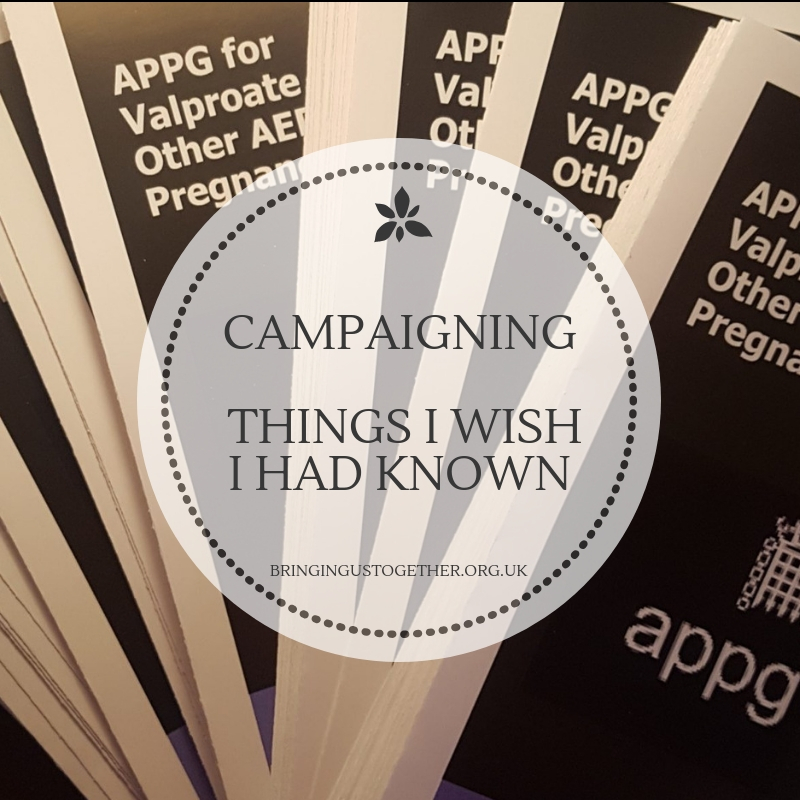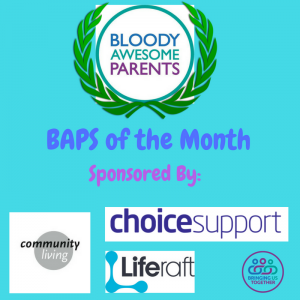Campaigning – 10 things I wish I had known
As parents and carers, we are constantly having to battle for our children’s rights. Whether it is a right to education, a right to the best possible health, a right to their best interests or their right to have their views heard and respected. Their rights are supposedly set in stone but we know that local policy does not always reflect this. Campaigning for national change is often considered but where do you start? As parent carers, we don’t always have the experience to take on the system.
We asked Janet Williams from INFACT to share her tips on things she wish she had known when they started their campaign. For those of you not aware of the INFACT campaign, In-FACT (Independent Fetal Anti Convulsant Trust) was formed in November 2012 by Janet Williams and Emma Murphy. Both have children affected (and diagnosed with a range of SEND) by their exposure to Sodium Valproate (Epilim). You can find out more about their fantastic work here.

- Differences between running a support group and a Campaign group/Trust.
There is huge difference between helping and supporting families and fighting Government. The friendly, caring aspect is non-existent when running a Parliamentary campaign and its necessary to always have your business head firmly on.
- The Intensity.
The workload is extremely heavy, from writing letters in a business style to being diplomatic all the time (even when it’s difficult), from planning the diary for important meetings with MPs and other governing bodies to writing new literature explaining your campaign, from dealing with the let downs to dealing with the intense excitement.
- The Cost.
A full time Parliamentary campaign can work out at around £10,000 per year….. No I didn’t believe it either. The cost comes with the trips to Parliament, the train fare and the overnight stops when you have an early start to the day. If you have an early meeting set, then it’s always best to go the day before and prepare for the meetings. Hotels in London can cost from £130 per night upwards, depending on how close to Parliament you want to be. Taxis can work out expensive too, so you’re always better using the Tube.
Finding decent places to eat that don’t cost the earth can be a hard task too. (If anyone can recommend some not overpriced restaurants near to Westminster, let the ladies know).
- Staying Continuously on Task.
Always be wary of being drawn off topic and losing focus. This can happen so easily, try to concentrate on what is needed next and planning, once you’ve dealt with an issue try to move on to the next and not deliberating if you’ve done things right or wrong.
If you make a mistake learn by it and don’t dwell on it. Every 3 months try to make a list of what you want to achieve and stick to it.
- Being 10 steps ahead.
You’ll know when you’re succeeding due to the lengths the Government go to in order to distract you. Don’t fall for it!! It’s quite possible they will separate you from your colleagues in meetings, offer you other alternatives or things to do which may sound good at the time, don’t be fooled by the niceties either. It’s important you bear all this in mind when working in Parliament.
- Finding the ‘Tipping point’
There will be a tipping point, just one thing – either a meeting, or a debate in parliament for your campaign – that will open the door to success. The moment that door is opened things will move faster and will be more intense due to the fact that you’ve proved yourself and your capabilities.
For our campaign, that came 4 years in, but some campaigns move faster than others depending on the topic.
- The Emotional Roller Coaster.
Emotions play as huge part in your campaign. One minute things will be going really well and you can feel excited, the next things slow down and sometimes feel like they’ve stopped and you feel like you’ve reached rock bottom.
At this point it is important to take a look back at the 3 monthly list, just to remind yourself what you’ve already achieved. It can have an effect on you personally and your family life. You find yourself constantly talking about it without realising it, it will be the last thing you think of before you fall asleep and the first things on your mind when you wake up.
- Attitudes of Others
This can have a huge effect on your emotions too. Some people may be jealous of your achievements, want to suddenly play a part in what you’re doing by forcing their issues onto your campaign, some tend to think they have right to be part of your campaign (even though they have previously been negative about it) and become bitter when they can’t. Family members may not understand the importance and intensity of your work even when you try to explain. Just remember why you’re running the campaign and how important to the ones you’re fighting for, your success really is.
- Taking a Break?
When working within Parliament you never know when an appointment or meeting is going to appear, it can happen out of the blue when you’re least expecting it. The best time for holidays will always be during the school holidays as Parliament is shut those weeks too… if you can afford it that is. Although, if you’re working with Government Bodies such as Dept. of Health, Education etc.. This will not be the case. There’s no planning ahead when it comes to taking a break.
It is important though, to have a family holiday (even if it’s just days out away from the campaign) or to take a couple of weeks, just for a rest, to catch up with yourself.
- Preparing for Success.
Once you realise you’ve reached that Tipping Point it’s time to plan and prepare for success.
As you go along, it’s always best to have media involved to try and keep it in the public domain, or at the very least make sure you have a social media presence. However when you’re reaching the end of the campaign, media can play a huge part. Gather names and emails addresses of National journalists as you go, and make a point of writing press releases to inform them of your campaign and what you want to achieve and why. Sometimes you may find national media refuse to play a part so it’s always important that you gather local journalists and newspaper contacts too.
If the butterflies kick in, it’s important you stay focused on the end game, try not to get too excited as there is always going to be something that can come at the last minute.
Focus, focus, focus.
A huge thanks to Janet for taking time out of her amazingly busy schedule to write this for us. We love the idea of the 3 monthly list and think that’s something we should all do so we have something positive to look back at on the days when we feel we are sinking.
Over to you….
If you have been involved in campaigning nationally (or locally), share your tips with us by commenting below (or email Debs@bringingustogether.org.uk) so others who may be considering a campaign, or are at the beginning, can learn from your experience.
Debs is one of the co-founders and Directors of Bringing Us Together. She is mum to three child with a variety of SEND and has a great husband.







